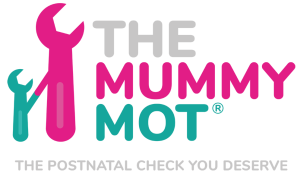Physiotherapy can be an effective treatment option for pelvic related issues by focusing on strengthening and supporting the pelvic floor muscles, bladder training, manual therapy and education and lifestyle changes. Our physiotherapist can develop a personalized treatment plan to address your specific needs and improve your overall quality of life.
Urinary dysfunction
Symptoms including urinary incontinence, overactive bladder, stress urinary incontinence.
A loss of bladder control is a common problem that can cause many different issues. We aim to assess the most likely cause of any leakage or incontinence and help to reduce the problems with targeted treatment plans from our specialist Physiotherapist.
Pelvic organ prolapse (POP)
A condition where one or more of your pelvic organs slip or move position causing a bulge in or around the vagina. Following an assessment from our specialist Physiotherapist we can diagnose this sensitive issue correctly and recommend the best course of treatment.
Lower bowel dysfunction - incontinence
This condition affecting both men and women involves a reduction in control of muscles around the anus. Main symptoms can be diarrhoea, constipation or weakness related to long term conditions such diabetes or multiple sclerosis.
Postural advice - lower back pain
A common condition that can be complicated by pelvic conditions. We are also trained in Occupational health advice to support any issues arising from work based desk setups or job roles.
Dyspareunia - Painful intercourse
Defined as persistent or recurrent genital pain after intercourse. After discussing this problem and receiving an assessment, our specialist therapist can advise which treatment approach is required to help reduce pain.
Specifically for mums

The Mummy MOT® is a specialist post-natal assessment recommended for all women following delivery (vaginally or by C-section) – whether 6 weeks or many years later.
Abdominal separation- diastasis recti
This usually occurs during pregnancy when the womb presses between the abdominal muscle walls down the middle of the stomach. This can cause pain and discomfort whilst bending or lifting a baby. To help this issue, gentle strengthening exercises are indicated along with some adjustments to your daily routine.
Exercise advice during / following pregnancy
This can be a difficult mix to get right, so that mum is able to keep active whilst pregnant but importantly is not causing any musculoskeletal plain whilst continuing to exercise. We can help structure better routines and advise which type of exercise is right for you.
Return to sport - postpartum
Depending on any previous exercise experience or hobbies, our Physiotherapist can support your return to sport and training safely. During our assessment we will ask about any complications that occurred during each pregnancy and provide the best evidence based advice on how to return to your chosen hobbies or activities.
Our Privacy Commitment to You
At MacFarlane Physiotherapy, we are committed to ensuring the privacy and confidentiality of all our patients, particularly those seeking pelvic health related treatments. We understand that these issues can be sensitive and deeply personal, and we strive to create a safe and comfortable environment for all our patients. We take all necessary measures to protect the privacy and confidentiality of our patients, including maintaining strict confidentiality of all patient information and using secure electronic health records systems. Our commitment to privacy and confidentiality is an essential part of our practice, and we take it very seriously.


